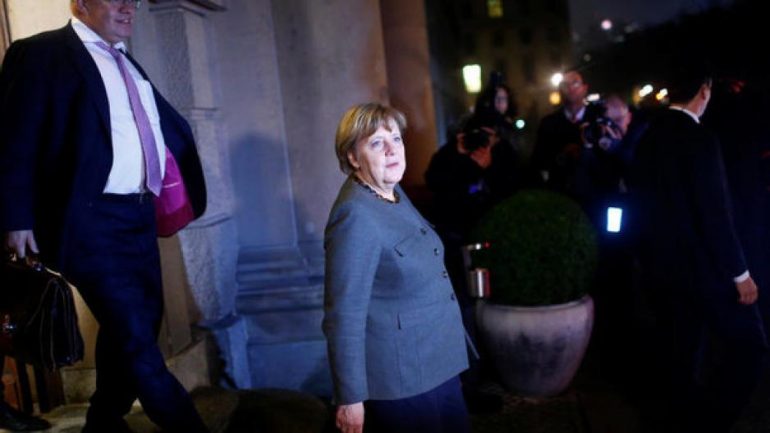The intergovernmental conflict over refugees and immigrants in Germany is turning into a government crisis, three years after Chancellor Angela Merkel decided to close the gates and the country to accept hundreds of thousands of asylum seekers.
What are the causes of the conflict?
It came in mid-June when Interior Minister Horst Seehofer, chairman of the conservative Bavarian Christian Social Union (CSU) party, saw a plan he wanted to present to tighten the country's asylum policy rejected by Chancellor Merr. The head of the German government opposes one of the most emblematic measures suggested by her minister: the planned repatriation to the German border of immigrants and refugees already registered in another EU member state. The "grand coalition" government formed after many hardships in March, it consists of the CSU, the chancellor's Christian Democratic Union (CDU) and the Social Democrats.
And why is this disagreement causing a government crisis?
The minister does not mean to back down. He gave an ultimatum to the chancellor: he threatened to impose deportations at the border by ministerial decree in early July if equivalent, very restrictive, measures were not taken at European level. For its part, the chancellor refused to succumb to the demand for the repatriation of migrants and refugees, fearing that similar moves would follow dominoes across Europe. The Bavarian minister considers the results of the recent European Union Summit to be insufficient and demands that measures be taken at national level.
Is the dispute only about immigrants and refugees?
The causes are much deeper. The Bavarian party, backed by the right wing of Merkel's own party, seems determined to settle accounts with the chancellor. She has never stopped denouncing her decision to open the gates in 2015 and allow hundreds of thousands of asylum seekers to enter the country in 2015. But, apart from immigrants, it is Merkel herself who is in his sights. The CSU has long ruled that it has moved the conservative faction to the center too much in its 13 years in power. The German left, on the other hand, denounces a "right-wing coup" in Germany. Many German media at the same time see in this attack the arrival of "Trumpism" in the country. The CSU, which advocates "immigration first" on immigration, is also outraged that state elections are approaching in Bavaria in October, when opinion polls suggest it could lose an overwhelming majority due to the rise. of the anti-immigrant far right, the Alternative for Germany (AfD) party.
What are the scenarios for the sequel?
Unless a compromise is reached in extremis, the Bavarian party will have no choice but to either leave the government or launch an attack. The interior minister could impose deportations at the border by unilateral decision. But the chancellor in that case would oust her minister, sparking the CSU's withdrawal from the coalition and the end of the "grand coalition" government, as it would lose a majority of seats in the Bundestag, the federal lower house. That would mean calling early elections. Unless the chancellor manages to stay in power for some time, heading a minority government with allies only the Social Democrats, or heading a broader government with the participation of the Greens.
What is the schedule?
Seehofer, who after the marathon meeting of his party's parliamentary group confirmed on Sunday night that he had expressed his intention to resign from the Interior Ministry - so that Merkel could not fire him, as he allegedly said - as and from the presidency of the Christian Social Union, he is going to have another meeting with the chancellor in the coming hours. He made it clear that he wanted the matter to be over within the next three days.
